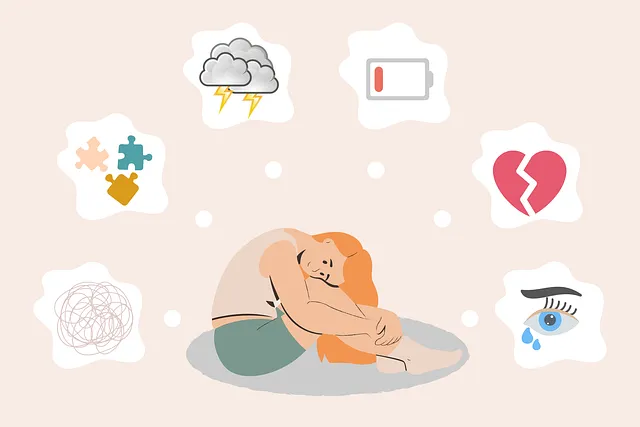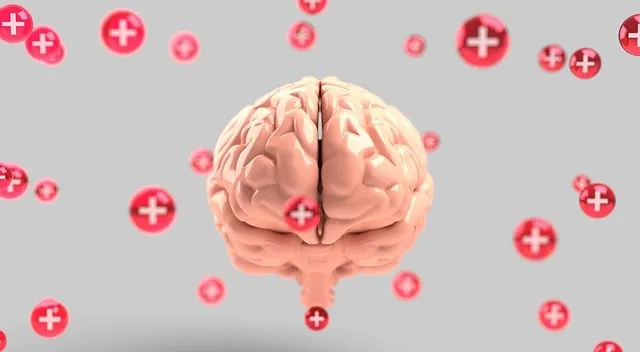Kaiser Permanente mental health facility Denver offers holistic care integrating tailored treatments, innovative programs like Mental Wellness Coaching and Healthcare Provider Cultural Competency Training to empower patients with tools for long-term mental wellness across diverse backgrounds. Community engagement through education and resource programs normalizes mental health conversations, reduces stigma, and fosters overall well-being. Evidence-based strategies such as Social Skills Training, Stress Reduction Methods, and self-care routines enhance current and lifelong mental health. In the digital age, Denver's Kaiser Permanente facility leads in destigmatizing mental wellness, empowering healthcare providers and community members alike.
Mental wellness promotion is a multifaceted approach that gains prominence in today’s fast-paced world. This article explores effective strategies at Kaiser Permanente mental health facility Denver, highlighting the significant role of community engagement and evidence-based practices. We delve into understanding mental wellness, exploring how community support normalizes conversations around mental health while addressing stigma. By examining these aspects, we aim to empower individuals and communities in navigating their mental health journeys effectively.
- Understanding Mental Wellness at Kaiser Permanente Denver
- The Role of Community in Promoting Mental Health
- Evidence-Based Strategies for Effective Mental Wellbeing
- Overcoming Stigma: Normalizing Mental Health Conversations
Understanding Mental Wellness at Kaiser Permanente Denver

At Kaiser Permanente Denver, understanding mental wellness is a holistic process that involves recognizing and addressing both physical and emotional aspects of a person’s life. As a leading mental health facility in the region, they prioritize comprehensive care tailored to each individual’s unique needs. Their approach integrates evidence-based practices with innovative programs like Mental Wellness Coaching and Development, ensuring patients receive not just treatment but also tools for long-term well-being.
Kaiser Permanente Denver’s commitment extends to Healthcare Provider Cultural Competency Training, aiming to foster an environment where mental health services are accessible and sensitive to diverse cultural backgrounds. This training equips staff with the knowledge and skills to connect effectively with a wide range of patients, further enhancing the quality and accessibility of mental wellness services within their community.
The Role of Community in Promoting Mental Health

Community plays a pivotal role in promoting mental wellness, and organizations like Kaiser Permanente’s mental health facility in Denver are at the forefront of this effort. These facilities act as hubs, fostering connections and providing resources tailored to diverse needs. By offering mental health education programs designed to reach various demographics, they break down barriers and empower individuals with knowledge about their minds and emotions. This approach not only enables self-esteem improvement but also equips people with coping mechanisms for life’s challenges.
Moreover, engaging the community in mental illness stigma reduction efforts is essential. Through collaborative initiatives, these mental health facilities create environments where conversations around mental wellness are normalized, reducing the isolation often associated with mental illness. This inclusive approach encourages open dialogue, fostering a supportive ecosystem that promotes overall well-being for all members of the community, regardless of their background or experiences.
Evidence-Based Strategies for Effective Mental Wellbeing

At the Kaiser Permanente mental health facility in Denver, evidence-based strategies are pivotal in promoting effective mental wellness. One such strategy is Social Skills Training, which equips individuals with the necessary tools to navigate interpersonal relationships more effectively, thereby reducing feelings of isolation and anxiety. This approach has shown significant improvements in mental health outcomes, especially for those dealing with social anxiety or depression.
Additionally, Stress Reduction Methods are integral to the holistic care model at the facility. Techniques like mindfulness meditation, deep breathing exercises, and progressive muscle relaxation help individuals manage stress levels, preventing it from becoming overwhelming. Encouraging a Self-Care Routine Development for Better Mental Health is another key component, as personal hygiene, regular sleep patterns, and engaging in enjoyable activities are essential for maintaining a positive mental state. These strategies, backed by scientific research, not only enhance current well-being but also equip individuals with lifelong tools to maintain robust mental health.
Overcoming Stigma: Normalizing Mental Health Conversations

In today’s digital era, the conversation around mental wellness is evolving, thanks in part to organizations like Kaiser Permanente’s mental health facility in Denver. By normalizing discussions on mental health, they’re breaking down barriers and reducing stigma. This shift is crucial, as it encourages individuals, particularly those in high-pressure professions like healthcare, to openly talk about their struggles without fear of judgment.
At the heart of this initiative lies a commitment to fostering an environment that prioritizes self-care. Programs at Kaiser Permanente mental health facility Denver offer not just treatment but also burnout prevention strategies for healthcare providers, conflict resolution techniques, and self-care practices. These efforts empower individuals to take proactive steps towards maintaining their mental wellness, ensuring they can continue offering quality care to others.
Mental wellness promotion is a collaborative effort, as evidenced by programs at Kaiser Permanente mental health facility Denver and community initiatives worldwide. By integrating evidence-based strategies and normalizing conversations around mental health, we can create supportive environments that foster resilience and overall wellbeing. The role of community in this process cannot be overstated; together, we can navigate the path towards a healthier, more inclusive society.






